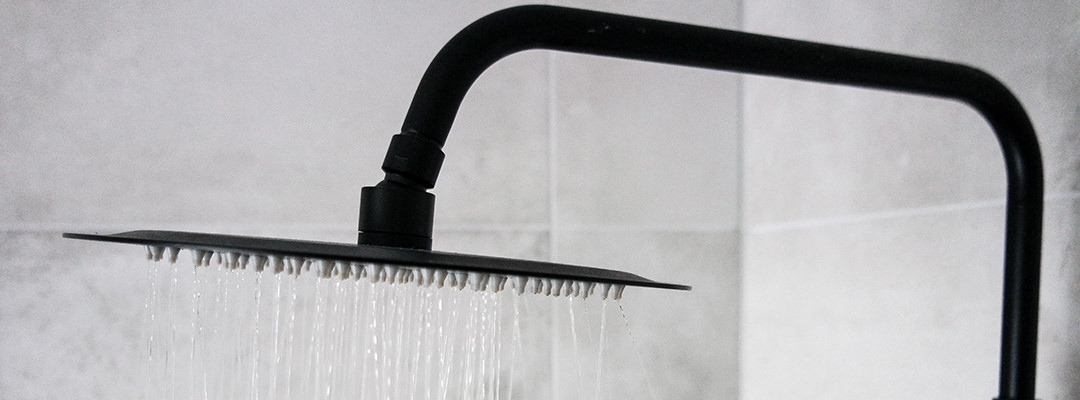For many people, getting into a warm, steamy shower is one of life’s great unsung pleasures. It calms us down when we’re upset, it helps relieve sore muscles, and even — bonus! — keeps us clean. Very often showering before bed is a natural part of our evening wind-down routine.
But with health experts beginning to ask questions about the types and times of showers that are best for us (and ones that are not so good), is showering before bed really as beneficial as we thought? Can showering before bed in the wrong way do more harm than good? If so, what can we do about it? Let’s explore together.
What Happens to Our Bodies When We Shower?
Our bodies and minds are pretty complex, and getting into a warm (or cold) shower can affect us in a variety of ways including:
- Easing muscle pain
- Increasing blood flow
- Improving concentration
- Enhancing creativity
- Regulating body temperature
- Increasing production of happiness chemicals, such as dopamine
When we shower, we’re essentially bringing our bodies back to center and sloughing off the physical and mental stresses of the day.
Showering Before Bed — Risks and Benefits
With that being said, there are a lot of conflicting opinions on what is the best time to shower, how long should your showers be, what temperatures should you use, what products should you use… for such a low-pressure activity, showering before bed has become the focus of a lot of pretty passionate research. Let’s look at what they have to say about the benefits and potential risks of showering before bed.
Benefits
- A recent study found that showering or bathing before bed in water between 104 and 108 degrees Fahrenheit (40 – 42 degrees celsius) improves the quality of our sleep, as well as helps us fall asleep faster.
- Another study on showering before bed found that showering or bathing in the same temperature range helped lower blood pressure both before and during sleep.
- Showering in the evenings aids in our bodies’ natural thermoregulation processes. During the day, our body temperature naturally fluctuates as it follows our circadian rhythm or our sleep-wake cycle. Our minds will often look to our body temperature to see if it’s time to go to sleep. This is why it’s so difficult to fall asleep at night when we’re too hot or too cold. The heating and cooling process we go through when we shower before bed helps our brain identify these signals.
- Showering before bed is one of the few things on this earth that forces us to completely disconnect from our electronic devices (at least, until someone invents iPhones that are completely waterproof!). Taking time away from both the anxiety stimulants and the blue light off our screens is essential in winding down for a peaceful night’s sleep.
- A warm shower or bath will help relax both your body and your mind. They’re great for soothing tired, achy muscles as well as easing out of the worries that have built up during the day.
- Showers have been proven to amp up creativity, which is great for your evening wind-down session — whether that’s journaling, doing something creative, or engaging in meditation. Plus, great ideas and creative activity do a lot of good for the positive hormones being released in our brains.
- In addition to all that cool stuff, showers even have the added benefit of — wait for it — keeping you clean. Going to bed with less gunk and oils on your body will keep you healthier in the long run as well as preserve the life of your pillows, bedding, and mattress.
Risks
- If you have a very hot shower too late at night, you run the risk of disrupting that temperature rhythm that signals your sleep cycle. For the most benefit, it’s best to take a warm shower an hour or two before sleep before giving yourself some time to cool down. If you kick up your body temperature too much and then try to sleep right away, you’re going to be sending your brain mixed signals and won’t sleep as well.
- Taking lengthy showers, especially ones in very hot water, can be damaging to your hair and skin. Hot showers strip the skin’s natural barrier, making it more difficult for your skin to hold onto the healthy fats and oils it needs. This is especially true for people with chronic skin conditions. For the most self-care benefits, keep showers short (ten minutes or less is recommended), with tepid to room temperature water.
- Showering right before bed is bad news for your hair. Going to bed with your hair still wet can cause a lot of problems including hair breakage, damage to your immune system, bacterial growth from the added moisture to your bedding, and skin conditions that emerge from the trapped moisture around your face. To avoid these nasty problems, give yourself some down time after showering for your hair to dry out as naturally as possible, then blast it with a blow dryer to get rid of any remaining residual moisture.
As you can see, most of the risks associated with showering before bed come from either using extreme water temperature or leaving it to the very last moment right before you go to sleep. To get the most benefit from your pre-snooze shower or bath, make sure to leave a cool down window of an hour or two before you actually get into bed, and avoid showering in scalding water that could peel the skin from your bones.
Hot vs. Cold Showers Before Sleep
So now that we’ve looked at the risks and benefits of showering before bed, what sort of shower should we be taking? Hot, cold, or somewhere in the middle? Experts have some divided opinions on which is the most beneficial to our health, but they all agree that you should avoid showers at both temperature extremes — searing hot or freezing cold. These types of showers give an unhealthy shock to your system.
Cooler showers have been shown to raise levels of cortisol in the body as well as improve our metabolism and immune system. They’ve also been shown to help loosen up stiff muscles, which can contribute to a better sleep. Cold water is known to improve blood circulation and create a feeling of alertness and vitality. Therefore, cold showers can have just as many benefits as warm showers but are better suited to the morning, when you need to kick up your energy, rather than when winding down to sleep.
Experts say that the best kind of shower to have around bedtime is a moderate temperature (between 104 and 108 Fahrenheit, or just slightly above body temperature), without spending too much time directly under the water source. Then, give yourself time to cool down and dry off before snuggling in for a deep, cozy, restful sleep.
Did you like it?4.6/5 (21)





